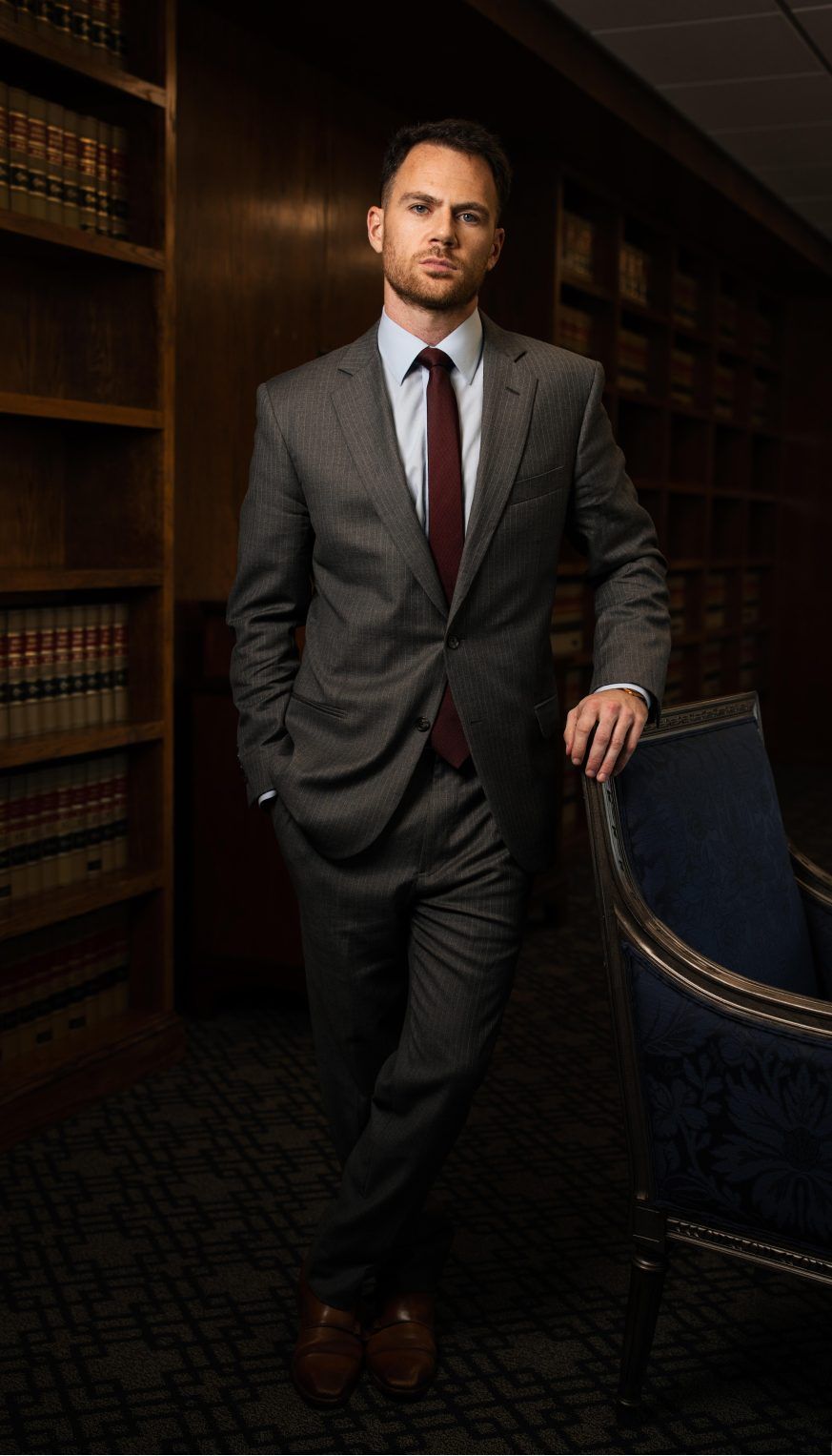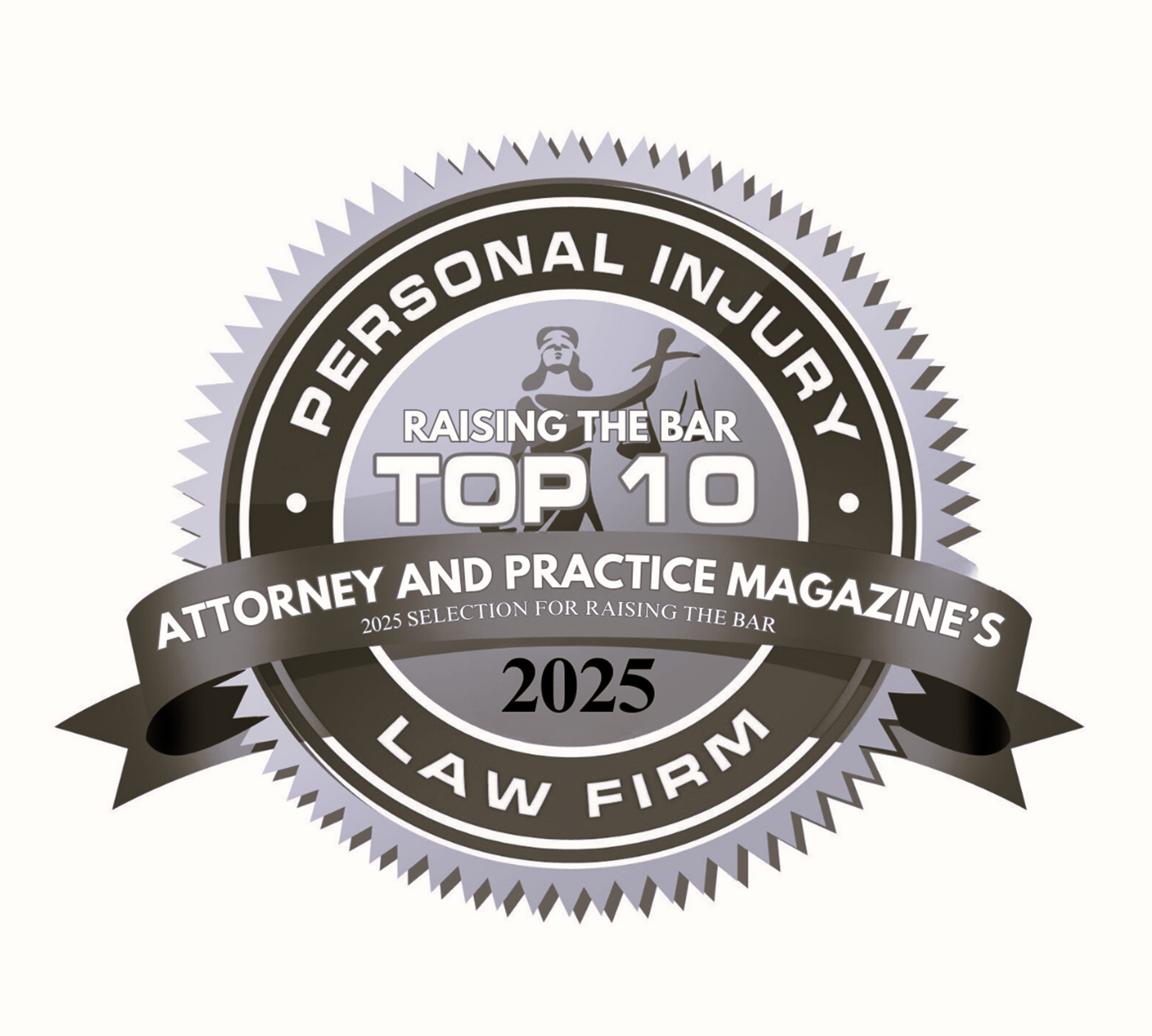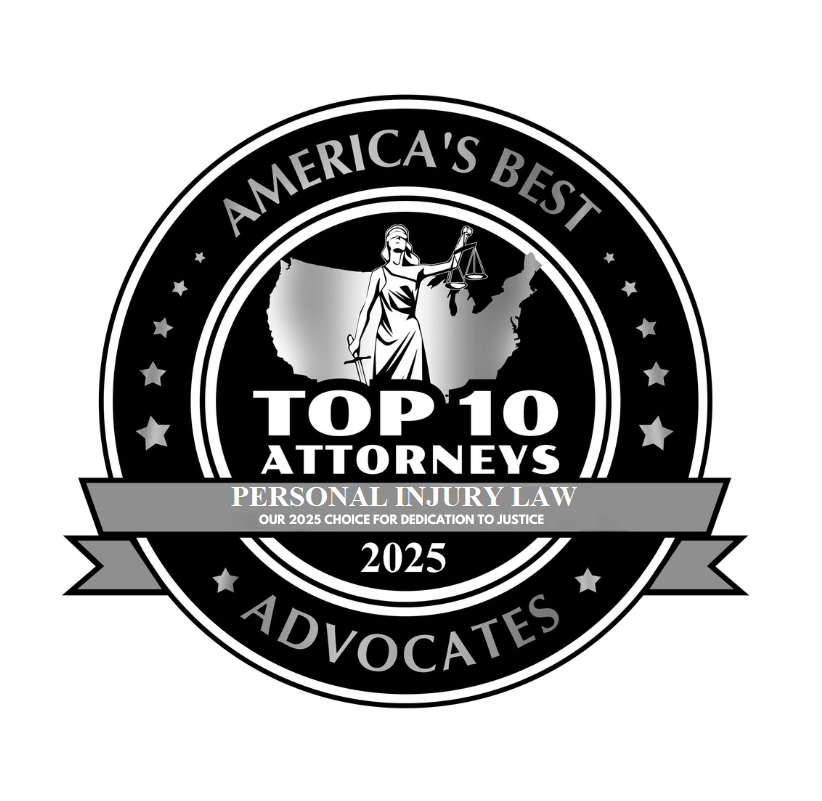Leeson & Leeson would be my first stop for whatever legal issue I was encountering. Highly recommended.
Allentown Traumatic Brain Injury Lawyer
When Winning Is the Only Option
What Is Your Case Worth?
We get big settlements
$275 Thousand
Settlement for injuries sustained from a Motor Vehicle Accident
$1.85 Million
Million Dollar Jury Verdict for Wrongful Death Lawsuit
$105 Thousand
Settlement for Commercial Breach of Contract
TBI Attorney in Allentown, PA
A traumatic brain injury (TBI) affects not only the person hurt but also family members who must adjust their lives around sudden changes. If you or your child suffered a brain injury in Allentown because of another person’s negligence, you may feel uncertain about the future. An Allentown traumatic brain injury lawyer at Leeson & Leeson can provide guidance and representation so that those responsible are held accountable and your financial losses are addressed.
Brain injury cases often involve high medical costs, long recovery times, and questions about how daily life will look in the future. Skilled legal representation ensures that insurance companies and liable parties take your claim seriously. Sometimes, the best way to protect your rights is by consulting with an experienced Pennsylvania drunk driving accident lawyer at Leeson & Leeson. Our firm offers free consultations to discuss your situation and possible legal options.

Real People, Real Results:
Client Testimonials
Highly recommended.
Abbe F.
He is the best attorney I [have] ever known.
Mr. Joseph was very knowledgeable and a pleasure to work with. Answered all my questions and was easy to contact and replied to all my questions in timely competent manner. Also his staff is very nice and polite. I would highly recommend Leeson & Leeson law office for any further needs . He is the best attorney I ever know.
Sunny Q.
...he is a good person as well as a good attorney.
“Most thought my case was too small to bother with but Attorney Leeson offered to help me because he is a good person as well as a good attorney… He kept me informed throughout the process and walked me through issues that were confusing… I’m very grateful that he agreed to help me and you can feel confident choosing him.”
Laura Accetta, PA
Theodore Roosevelt once said "speak softly but carry a big stick." The Leeson lawyers embody this principle to perfection.
“The Leeson & Leeson firm has a long-storied history of intelligent and sophisticated lawyers and aggressive and tough litigators. Theodore Roosevelt once said “speak softly but carry a big stick.” The Leeson lawyers embody this principle to perfection… I highly recommend Leeson & Leeson for anyone who wants an attorney who is of a high order of integrity and legal intelligence.”
Francis Macri, PA
Key Takeaways Involving TBIs
- Understanding the signs and symptoms of traumatic brain injury is crucial for seeking timely medical care and legal protection
- Pennsylvania follows a modified comparative negligence rule, allowing TBI victims to recover damages even if partially at fault (up to 50%)
- TBI cases require extensive medical documentation and expert testimony to establish the full scope of cognitive, emotional, and physical impacts
- Compensation may include medical expenses, lost wages, future care costs, and pain and suffering damages
- The two-year statute of limitations in Pennsylvania makes prompt legal action essential for protecting your rights
What Constitutes a Traumatic Brain Injury Under Pennsylvania Law?
Pennsylvania law treats traumatic brain injuries as serious personal injuries because they often involve lasting impairments. The injury occurs when a sudden force disrupts normal brain function, which may result from accidents, falls, or intentional harm. Lawyers and courts rely on both medical evidence and legal definitions when assessing these cases.
Common Types of TBI in Personal Injury Cases
- Concussion: A mild blow to the head causing temporary loss of brain function, often linked to falls or sports accidents.
- Contusion: Bruising on the brain tissue itself, which can require surgery if severe.
- Diffuse Axonal Injury: Widespread damage to brain cells often caused by violent shaking or car accidents.
- Penetrating Brain Injury: An object pierces the skull and damages brain tissue.
Mild vs. Severe Brain Injuries: Legal Classifications
Medical professionals classify brain injuries as mild, moderate, or severe based on symptoms and imaging. Even a mild injury can disrupt work, school, and relationships. Severe injuries often involve permanent impairments requiring lifetime care. Courts recognize both categories when awarding damages, but the level of proof and medical support required increases with severity.
Medical Documentation Requirements for TBI Claims
Insurance companies and courts expect strong medical records to confirm a brain injury claim. These may include:
- Imaging results: CT scans or MRIs showing damage. For example, a person injured in a car accident on Hamilton Street may have a CT scan that reveals internal bleeding in the brain, providing clear proof of trauma.
- Neurological exams: Tests of memory, reflexes, and balance. A neurologist may document how the injured person struggles with short-term memory after a fall in a South Allentown shopping center.
- Treatment records: Notes from doctors, therapists, or rehabilitation centers. These records often show how symptoms develop over time, like worsening headaches or delayed speech issues, which strengthen the connection between the accident and the injury.
- Neuropsychological testing: Evaluations of cognitive and emotional changes. For instance, testing might show that someone who once managed finances with ease now struggles to perform basic math after a concussion.
Courts and insurers rely heavily on these records, and missing or incomplete documentation often creates hurdles. Gathering comprehensive medical evidence early helps secure a stronger claim.
How Do I Know If I Have a Valid TBI Claim in Pennsylvania?
Not every head injury automatically creates a legal claim. To pursue damages, the injured person must link the harm to another’s wrongful act or negligence.
Establishing Negligence in Brain Injury Cases
Negligence means someone failed to act with reasonable care. For example, a distracted driver who rear-ends another car may be held responsible for resulting injuries. Lawyers prove negligence by showing the other party had a duty to act safely, failed to do so, and caused harm.
Pennsylvania’s Comparative Negligence Standard
Pennsylvania uses modified comparative negligence. If you are less than 51 percent at fault, you may still recover damages, but the amount is reduced by your share of responsibility. For instance, if you’re found 20 percent responsible in a slip-and-fall accident at a store in West End Allentown, your award is reduced by 20 percent.
Proving Causation Between Accident and Brain Injury
Even when negligence is clear, you must link the accident to the brain injury. Medical experts often provide testimony to connect the trauma with symptoms such as memory loss, headaches, or mood changes. Without this link, insurers may argue the injury existed before the incident.










What Damages Can I Recover for a Traumatic Brain Injury?
Recovering from a TBI often involves both immediate medical bills and long-term costs. Pennsylvania law allows injured people to pursue different categories of damages.
Economic Damages: Medical Bills and Lost Income
Economic damages cover the financial losses tied directly to a brain injury. These costs are usually the easiest to calculate because they rely on bills, receipts, and employment records. Common examples include:
- Hospitalization and surgery costs: Emergency room visits, intensive care stays, and neurosurgery are some of the largest expenses in the first days after an accident. For instance, a person injured in a truck crash on I-78 may spend weeks in the hospital, generating hundreds of thousands of dollars in bills.
- Rehabilitation expenses: Recovery often involves physical therapy, occupational therapy, and speech therapy. These sessions may last for months or years. A slip-and-fall victim who suffers a concussion at a local store may require weekly rehabilitation appointments to regain motor coordination.
- Medication and assistive devices: Prescription drugs for pain, mood stabilization, or seizures, along with wheelchairs or specialized communication devices, can be lifelong costs for some TBI victims.
- Lost wages from missed work: A construction worker who suffers a brain injury in a scaffold accident may be unable to return to work for several months. Pay stubs and tax returns provide a record of lost income during recovery.
Non-Economic Damages: Pain and Suffering
While medical bills and lost income show up in financial records, the impact of a TBI often extends far beyond money. Non-economic damages compensate for losses that don’t have a price tag but still disrupt quality of life. These include:
- Physical pain and discomfort: Daily headaches, dizziness, or sensitivity to light may linger long after the initial injury.
- Emotional struggles: Anxiety, depression, irritability, and sudden mood swings often accompany TBIs. For example, a parent injured in a bicycle accident near Cedar Creek Park may find it difficult to enjoy time with children because of persistent irritability and fatigue.
- Sleep disruption: Many brain injury survivors develop insomnia or irregular sleep patterns, which can worsen concentration and memory problems.
- Loss of enjoyment: Hobbies, social gatherings, or simple activities like driving may no longer be possible. Someone who once loved coaching youth baseball in Allentown may be unable to participate due to balance issues or memory lapses.
Courts often rely on testimony from both the injured person and close family members to measure the depth of these harms. By sharing how life has changed since the accident, victims help paint a full picture of what the injury has taken away.
Future Care and Rehabilitation Costs
Brain injury victims often need extended care. Future damages may cover ongoing therapy, nursing support, or in-home modifications, such as wheelchair ramps or adaptive technology.
Loss of Earning Capacity Calculations
If a TBI prevents you from working at the same level or in the same job, the claim may include loss of earning capacity. Economists and vocational experts calculate the difference between expected career earnings and reduced earning ability.
Common Causes of Traumatic Brain Injuries in Allentown
TBIs happen in many different ways across the city, from traffic on Hamilton Street to recreation at local parks.
Motor Vehicle Accidents
Car, truck, and motorcycle collisions on Route 22 often result in head trauma due to sudden impact.
Pedestrian and Bicycle Accidents
Busy intersections near Tilghman Street can place walkers and cyclists at risk when drivers fail to yield.
Slip and Fall Incidents
Falls in stores, apartment complexes, or workplaces may cause serious head injuries, especially when property owners ignore hazards.
Premises Liability and Dog Bites
Unsecured properties or aggressive dogs in neighborhoods like East Allentown can cause unexpected accidents leading to TBIs.
Defective Products
Faulty helmets, airbags, or machinery sometimes contribute to brain injuries when safety designs fail.
Medical Malpractice
Errors during surgery, anesthesia, or labor and delivery may result in preventable TBIs.
Nursing Home Abuse
Elderly residents in care facilities are vulnerable to head injuries from neglect or intentional harm.
Sports and Recreation-Related TBI
High school football, soccer, and playground accidents in Lehigh Parkway sometimes lead to concussions and repeated head trauma.
How Long Do I Have to File a TBI Lawsuit in Pennsylvania?
Timing matters in personal injury claims. Pennsylvania law sets deadlines that determine whether your case can move forward.
Pennsylvania’s Two-Year Statute of Limitations
Most brain injury lawsuits must be filed within two years of the accident date. Missing this deadline usually means losing the right to bring a claim.
Discovery Rule Exceptions
If symptoms appear later, such as memory problems months after a fall at the Allentown Fairgrounds, the clock may start when the injury is discovered.
Special Considerations for Children and Incapacitated Persons
Children injured in Allentown schools or playgrounds may have extended filing deadlines. The statute often doesn’t begin until they turn 18.
What Evidence Do I Need for a TBI Case?
Strong evidence forms the foundation of any successful brain injury claim.
- Medical Records and Neurological Testing: Doctors’ notes, scans, and test results provide objective proof of the injury.
- Witness Testimony and Accident Reports: Eyewitness accounts and police or incident reports help confirm how the accident happened.
- Expert Medical Testimony Requirements: Specialists often testify about the long-term effects of the brain injury, connecting the medical evidence to daily struggles.
- Employment and Financial Documentation: Pay stubs, tax returns, and work records show how much income was lost and how future earnings might be affected.
How Our Attorneys Can Help
A brain injury case often requires both legal and medical knowledge. The attorneys at Leeson & Leeson provide comprehensive support throughout the process.
Comprehensive Case Investigation and Evidence Gathering
Lawyers collect accident reports, medical evaluations, and testimony to build a clear picture of what happened.
Coordination with Medical Experts and Specialists
Our firm works with neurologists, neuropsychologists, and rehabilitation experts to strengthen claims.
Negotiation with Insurance Companies
Insurance adjusters often attempt to reduce payouts. Attorneys push back, using evidence to demand fair settlements.
Trial Preparation and Courtroom Advocacy
When insurers refuse to act responsibly, lawyers prepare cases for trial and advocate before a judge or jury.
Assistance with Medical Treatment and Rehabilitation Planning
Beyond legal steps, our firm helps clients connect with doctors and rehabilitation centers to support recovery.
Frequently Asked Questions About Allentown TBI Claims
Can I Still Recover Compensation If I Was Partially at Fault for My Accident?
Yes. Pennsylvania law allows recovery if you are less than 51 percent at fault, though your damages are reduced by your percentage of responsibility.
How Much Is My Traumatic Brain Injury Case Worth?
Case value depends on medical expenses, lost income, pain, and long-term needs. Every situation is different, and an attorney evaluates the specific facts before estimating value.
Do I Need to Go to Trial for My TBI Claim?
Many cases settle outside court, but if the insurer refuses fair payment, your lawyer may recommend going to trial.
What If My Symptoms Didn't Appear Immediately After the Accident?
Delayed symptoms are common in brain injuries. Doctors and legal experts can connect later-developing problems to the original accident.
Will Insurance Cover All My Traumatic Brain Injury Expenses?
Insurers often attempt to limit coverage. Legal representation helps make sure all documented costs, both current and future, are included in the claim.
Contact Our Traumatic Brain Injury Lawyers in Allentown Now
Brain injury cases require quick action. Evidence fades, witnesses move, and medical records become harder to collect with time. If you or a loved one suffered a TBI in Allentown, don’t wait to seek legal advice. Call team of Allentown personal injury lawyers at Leeson & Leeson at (610) 691-3320 for a free, no-obligation case evaluation today.
